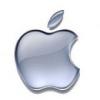-
Posts
10069 -
Joined
-
Last visited
-
Days Won
569
Content Type
Profiles
Articles, News and Tips
Forums
Everything posted by Hervé
-
Make sure to repair permissions and rebuild the cache once you've copied the kexts to /L/E and the patched AppleHDA to /S/L/E. If you only keep/use the kexts in /E/E, then you need to boot with options KernelBooter_kexts=Yes -f -v to inject the kexts at startup and you will not have audio.
-
Your boot issue is that of 4K sector HDD. Using the attached i386 folder extracted from Enoch r2839 package, copy the boot1h file to your OS X partition using the following process: 1) identify your OS X disk partition diskutil list 2) copy the boot1h file to your identified OS X disk parition cd <i386 folder> dd if=boot1h of=/dev/<identified OS X disk partition> ` Eg: cd ~/Desktop/i386 dd if=boot1h of=/dev/disk0s3 i386.zip It's a long time since I've had to do this myself, but if I remember well, you may not manage to properly execute the dd command on the mounted partition you've booted from. In that case, copy the i386 folder to the root of you USB installer, then boot it and open up Terminal once you've reached the OS X installer screen. Then use the commands above to copy the boot1h file to your HDD partition.
-
Just to let you know that I made some final adjustments to pack 4 as detailed in the EC guide that I also slightly revised with regards to adding patched AppleHDA / AICPUPM / IOGraphicsFamily / AppleRTC kexts. Should be much better for everyone now.
-
Ok, found the issue: I uploaded a revised bootpack where KernelBooter_kexts is set to No. I've corrected that now. What you can do with your current USB installer is interrupt Enoch's startup process when you see the moving character in the top left corner and type: KernelBooter_kexts=Yes -f -v This will ensure you load kexts from /Extra/Extensions (as desired) and boot without cache, bypassing /Library/Extensions. Just for clarity, can you explain what you meant when you wrote: "I put the patch for the power management into extensions as suggested" ?
-
Sierra does indeed work perfectly on the E6220. I'm overdue for the guide but it's basically more or less the same as for El Capitan and you can re-use the same pack meantime (I've just updated it with Dr Hurt's VoodooPS2Controller Release 4).
-
You install Enoch with the default settings, that's why there is no further details on its installation. The bootpack will then add all necessary options. The KP is due to the VoodooPS2Controller provided in my pack, I need to replace it with Dr Hurt's Release 4. Grab it from here and you should then be able to boot 10.11.6 Ok. I'll update the pack. My apologies for not doing this sooner.
-
Sierra runs with the same patches/adjustments as El Capitan...
-
Sounds like you're talking about a OS X disk/partition + a Win disk/partition on the same PC. If you cannot get Transmit to work properly, why don't you create a 3rd small partition, formatted FAT on which you can copy files to/from Win and OS X? That certainly works, I can vouch for it.
-
Looking at the extracted DSDT, it appears the PCI root is set to 0: Scope (_SB) { Device (PCI0) { [...] Name (_UID, 0x00) // _UID: Unique ID It's the _UID value of device PCI0. From OS X, the PCI root value can also be checked through the following Terminal command: ioreg -l | grep -15 "AppleACPIPCI\ " | grep UID ` You can refer to this old thread for details: https://osxlatitude.com/index.php?/topic/2061-dell-precision-470-670-workstation-snow-leopardlionmountain-lionmavericksyosemite/&do=findComment&comment=32511 https://osxlatitude.com/index.php?/topic/2061-dell-precision-470-670-workstation-snow-leopardlionmountain-lionmavericksyosemite/&do=findComment&comment=32511
-
It'll be worth checking what PCI root value Dell set on this workstation. Dell had a habit of setting it to 4 on its high end PCs and workstations. It was therefore necessary to set PCI root to 4 as a bootloader option to be able to successfully boot OS X. Thereafter, the DSDT could be patched to change the PCI root to 0 (i.e. default bootloader value).
-
Indeed, the E6x20 normally only runs OS X with BIOS in legacy mode.
-
There are existing threads on keyboard remapping. https://osxlatitude.com/index.php?/forum/102-keyboard-trackpadtouchpad/
-
Forget about 802.11ac cards under SL or Lion; OS X only supports this from ML 10.8.4, or 10.8.5 i.e. unreachable territories for the D630 GMA X3100. In addition, please note that the D630 only takes full-size mini-PCIe cards so you would need to add an adapter plate if you want to install a half-size wireless card. I would advise you to consider a full-size 802.11n Broadcom and/or Atheros card that'll work OOB. I can recommend Atheros AR5B91 (2.4GHz) or AR5BXB92 (2.4+5GHz). On the Broadcom side, you have the DW1505.
-
You're getting compilation error for the _OFF and _ON methods you've added because they're not declared in the DSDT but in one of the SSDTs. As such, you must declare these functions as External functions at the very top of your DSDT; you'll see similar code lines for other functions. Just copy/paste existing external declarations and adjust to _OFF/_ON functions. Should be something like: External (_SB.PCI0.PEG0.VID._OFF, MethodObj) External (_SB.PCI0.PEG0.VID._ON, MethodObj) You'll find guidance and samples on this matter here.
-
I would modify 2 things in your Clover config.plist: in Graphics tab, I'd select option "inject nVidia" in SMBIOS tab, I'd opt for iMac16,1 (Broadwell) rather than MacPro6,1 (IvyBridge) If you can, try and press F4 at Clover main menu to extract your raw BIOS tables and get them saved to CLOVER/ACPI/origin folder of EFI partition. You can then post us a zip archive of your DSDT and SSDTs.
-
Many Dell workstations are configured with a PCI root set to 4. With default PCI root set at 0, bootloaders often can't initialise graphics cards properly until the value of 4 is specified.
-
Recompile the table and save the .aml file to ACPI/patched folder of your EFI folder. Patched AppleHDA must be placed in /S/L/E where it replaces the vanilla kext. Permissions must be repaired and cache rebuilt thereafter. The kext will not load from anywhere else.
-
There should not be much really. Look for builds of similar specs or post a zipped copy of the EFI folder of your EFI partition and we'll have a look.
-
You'll probably have to make up your own boot pack. All you need to begin with is the FakeSMC kext (it's mandatory). Thereafter, you look for drivers that handle your hardware elements (LAN, audio, wireless, etc.). You're also going to have to configure Clover according to your system. Your Workstation is based on a Broadwell platform.
-
I don't believe BCM5722D LAN kext applies to the E Series... Kexts placed in the EFI/CLOVER folder are injected at startup. Once you're happy you've got the right kexts, move them to /L/E from where they can be cached, which improves startup time.
-

[SOLVED] Run macOS Sierra from an external hard drive, possible?
Hervé replied to spidey123's topic in The Archive
Your DSDT patch is fine as it is; nothing to change. Do the rest. -

[SOLVED] Run macOS Sierra from an external hard drive, possible?
Hervé replied to spidey123's topic in The Archive
Identify SD card reader in IOReg through IOregistryExplorer app (or any equivalent). Patch the DSDT device under which the SD card reader registers Remove all instances of VoodooSDHC kext (in SLE and/or LE and/or EFI/CLOVER/kexts folder of EFI partition) Rebuild cache from Terminal using: touch -f /S*/L*/E* touch -f /L*/E* sudo kextcache -Boot -U / If you get an error 77, repeat the commands. -
You can create a Sierra USB installer using the usual manual process (same as for Yosemite or El Capitan), then install the bootloader (Clover or Enoch) and the required bootpack. You can reuse your existing Yosemite pack (I understand you currently run that). For an Enoch based installation with BIOS in legacy mode, you can follow a similar process as described here, excluding the computer's specific pack of course. I would recommend you create a separate partition and retain Yosemite for the time being.
-

[SOLVED] Run macOS Sierra from an external hard drive, possible?
Hervé replied to spidey123's topic in The Archive
Spidey123, the patch certainly looks good now so, if your SD card reader is indeed under Device (RP06), you should have a fully functional reader. If not, do as Jake suggests right above.


